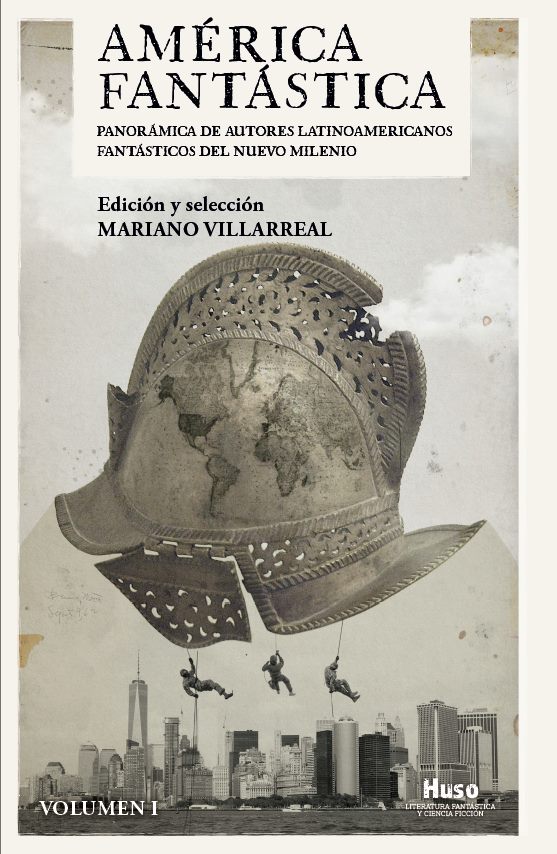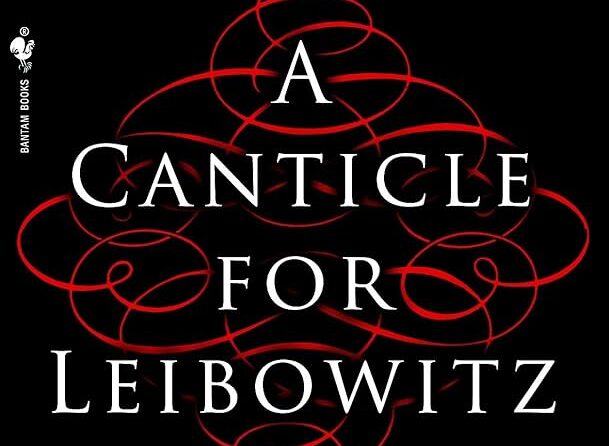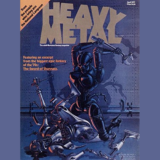
OBIR: Occasional Biased and Ignorant Reviews reflecting this reader’s opinion.

ON SPEC MAGAZINE issue #110, Vol. 29 No. 3 & 4 Double Issue.
Publisher: The Copper Pig Writer’s Society. Managing Editor and Art Director: Diane L. Walton.
Issue Designer: Jerry LePage. Poetry Editors: Barry Hammond, and Charlie Crittendon.
Fiction Editors: Barb Galler-Smith, Virginia O’Dine, Madison Pilling, Constantine Kaoukakis, Ann Marston, Laurie Penner, A.J. Wells, Dianne L. Walton, Renee Meloche, Dan Gyoba, and Greg Mitchell.
Cover Art by Dan O’Driscoll.
FICTION:
The Care and Conservation of Unusual Properties – by Julia August.
This actually consists of five thematically-related short-shorts scattered throughout the body of the magazine. They are:
1) An Isolated Tower Raised by Spirits of the Air for Merriman the Red
Premise:
Volunteers being instructed on how to clean the volumes in a magical library.
2) A Hut Standing on Chicken Legs Deep in the Forest.
Premise:
Inventory of enchanted linen for museum accreditation.
3) Bone-Filled Catacombs Inhabited by a Shadowy and Mysterious Priesthood.
Premise:
Introduction to zombie tour guides.
4) An Extremely Small Cottage in the Woods.
Premise:
The Creepy contents of a vitrine and how to clean it.
5) A Subterranean Labyrinth Excavated by Gnoles for the Draco Sanguinis Family.
Premise:
The does and don’ts of dusting a Dragon den.
Review of all five segments:
Though each section stands on its own, in combination they constitute a somewhat Lovecraftian Janitor’s manual on how to clean and maintain potentially dangerous displays of supernatural artifacts. A charming concept enlivened with dry humour. In quick succession each would lose its impact, but spaced at intervals among the other stories in the magazine each entertains the reader to the extent of a subtle smile or a chuckle. I have no doubt Lovecraft would have enjoyed reading them. Every-so-slightly macabre tales, I consider them pleasant fun. But then I would, wouldn’t I? Pretty sure you will, too.
Afterlife – by Alison McBain
Premise:
Edward Alston is a medium. And a Doctor. And a Psychiatrist. He makes a living helping the limbo-dwelling dead. They pay him well.
Review:
This is a surprise. A totally original concept, at least to me. Never come across it before. In the story Edward normally helps the dead readjust their appearance to match that of deceased lovers lost years earlier but now reunited. His latest patient, however, wants something different. Even more odd, she has something to offer Edward didn’t know he needed. A gentle, peaceful story. Rather hopeful, really.
On the List – by Brad Preslar
Premise:
Marla, her baby Nadine, and her lover Shane are refugees on the dying Earth, enduring the cold of a nuclear winter, praying they will be on the next posted list of those permitted to take a shuttle off Earth.
Review:
What happened to the Earth isn’t important. Where the shuttle goes isn’t important. How to get on the shuttle is all that matters. There are all manner of illegal ways to earn enough to acquire the coveted blue token which will guarantee passage. But to acquire three tokens? Impossible. Or is it?
In this age of refugees the story reflects the suffering of millions. Sacrifice, tough choices, exploitation, and abuse are all too often the lot of a refugee. That, and the horrible speed with which hope is replaced with desperation. A sobering tale, it represents a contemporary reality most find difficult to contemplate, let alone identify with. A bleak, desolate vision. Depressing, yet needful.
Ice Singer – by J.S. Veter
Premise:
Solly waits until she hears the song of the singer moving beneath the ice. She then initiates the descent. As quickly as possible, her bathysphere drops down the shaft through the outer ice shell of the Moon Europa and enters the vast inner ocean. What is she about to discover?
Review:
Aha! This story explores one of the great questions of modern times: Is there life beneath the surface of Europa? This is the kind of science fiction I’ve always loved best. Exploration and discovery. The story is not overloaded with detail. There is no lengthy explanation of how the expedition was funded and carried out. Even the expedition base is not shown beyond a bare minimum, the other people involved barely mentioned. The story concentrates on Solly seizing the appropriate moment and plunging down into an alien sea to find out who or what is making all the noise. The answer is unexpected, but plausible. I’m pleased.
Strings – Mike Rimar
Premise:
Clara and the unnamed protagonist are stretched out on a mound of garbage. Nothing unusual about that. The whole world is a pile of rotting garbage left over from the Before Time. But what brings them here, despite the threat of the garbage moles and the prowler beasts, is that the Beater clan camped in the hollow below has something their clan leader wants. Something miraculously preserved intact and pristine. Something which can connect everyone to the happiness of the Before Time. But first they have to steal it.
Review:
I ask myself, is the artifact something I would risk my life to acquire? I figure the answer is “no.” I know people who would shout “Yes!” So, given that the human race has been reduced to scavenging what they can to survive, the prospect of risking life and limb to get a hold of a thing which has value beyond mere subsistence makes sense. Maybe. Up to the reader to decide.
Mnemosyne – Catherine MacLeod
Premise:
Syne is an ectocourier. She has the rare ability to absorb and transport ghosts to wealthy idiots who want their premises haunted. She figures this will be her last job. Problem is, there are complications. For one thing, the ghost is a former lover of hers.
Review:
Another original concept, I think (I don’t get out much). They say office romances are a bad idea. Certainly it can effect your work performance. The essential problem in this story is whether or not Syne can deliver the ghost on time (there are serious time constraints with VERY serious consequences if things go wrong) despite her somewhat muddled reminiscences and wishful thinking. Not to mention unexpected obstacles thrown in her path. A fun conundrum.
Men of Fire – by Ruth Gilbert
Premise:
A military penal colony on an alien planet is about to come under attack. The colonists are ordered to evacuate, but they refuse. They prefer to stand and fight.
Review:
As an armchair General I might dismiss this as fictional bravado lacking in credibility, were it not for the fact I am halfway through reading a three-volume history of the British Empire. The premise is psychologically sound and has happened in the real world ridiculously often. A wake-up call as to how people actually behave when you least expect it. Entertaining though the eccentric character interaction is, the basis of the story is surprisingly well grounded. A useful lesson methinks. And a lot of fun to read.
How “Bitcoin” O’Brien Met the Queen of the Fair Folk – by Robert Dawson
Premise:
Irish refugees didn’t cross the Atlantic alone. The fey folk accompanied them. “Bitcoin” O’Brien, being a con artist, is a practical man. So, too, is Police Detective Steve Murphy. Yet neither man has any problem exploiting a local New England fairy mound for their own purposes.
Review:
This is one of the delightful aspects of the story, that Irish mythology is a living thing to these hard-bitten men and not something they automatically ignore. Oh, to be sure, only one of them is a true believer, but the other understands enough to quickly take advantage of the other’s faith. The story is told from the point of view of Nina Weinstein, an undercover police woman working for Murphy. Her love for another woman turns out to be appropriate to the plot. The story winds up neat and tidy, seamlessly combining police fiction with fantasy, and just as successfully rendering ancient beliefs relevant to modern sensibilities. A very neat trick indeed. This is the kind of fantasy I like. “Practical fantasy,” I guess I could call it. Anyway, found the story delightful and refreshing.
Leaf – by Carolyn Watson
Premise:
Six-year-old Beatrice notices a leaf sprouting out of her mother’s hair. Her only concern is how to water it. Her mother is too busy setting up a real estate deal to pay attention to her newfound foliage. All the leaf wants to do is conquer the world.
Review:
Hmm, not quite urban realism. Puts me in mind of J.G. Ballard’s The Crystal World where the world’s lifeforms mutate into a crystal jungle. The question inspired by both is not so much “Why?” as “What does the symbolism mean?” Does the leaf stand for the inevitability of greed destroying humanity? The suicidal nature of our civilization? Is there an implication innocence alone guarantees survival? Or does it represent, through role reversal, what we are doing to the natural world? Or merely Nature’s revenge? Or just a leaf trying to take over the world? I don’t much care, actually. I simply sat back and enjoyed the surreal imagery as I read, rather like contemplating a painting by Max Ernst. Intriguing in and of itself.
Free-Birding Through the Zombie Apocalypse – by Jeff Stehman
Premise:
The zombie apocalypse has been underway for quite some time. Linda and Steve find a 1974 Chevrolet Nova Coupe abandoned in a field. Though a rust-ridden heap, it likes the couple and allows them to drive it past the zombies hunting them. It even lets the 8-track player work. Something unusual in the trunk though.
Review:
When I think of “zombie apocalypse” I tend to focus on the zombies. However, if it is THE apocalypse, zombies aren’t the only possibility. Nice to think that dormant machines will willingly work for us when asked. Some may suggest that a sentient machine is a touch of fantasy that conflicts with the “realism” of zombies. Uh huh, sure. I would argue that both are equally “magic” consequences of the apocalypse, and therefore equally acceptable. It violates the “just one impossible thing in a story” rule, but hey, it’s the apocalypse! Anything can happen! It is difficult to write a zombie story without running headlong into the numerous clichés now firmly established in the zombie sub-genre but Jeff manages to manoeuvre around the clichés quite nicely. The extra “impossible thing” makes all the difference.
Elegy – by Sarah L. Johnson
Premise:
George, a trans-fem lesbian, who is very careful to explain on a first date that she is not cis-fem, marries Clem, a cis-fem lesbian. Soon Clem is with child. Complications ensue.
Review:
Strikingly modern story, involving characters of a nature not normally mentioned in mainstream literature until recently (as far as I know), revolving around the age-old concept of having to deal with the consequences of a “forbidden” love affair/marriage. I suppose, in the minds of some readers, there are added complications having to do with current internal conflicts within the LGBT community over which gender-nature self-definitions are legitimate and which are not.
As a child in the 1950s, my only awareness re: “the other” had to do with live CBC TV broadcasts in Ottawa of drag queens exiting taxis and striding between lines of jeering onlookers to enter the annual Halloween ball which was the one occasion when guys in dresses were permitted to appear in public, albeit only at that location. Since I was raised to believe that everyone is equal, regardless of race or gender, Prime Minister Trudeau’s later declaration that “the state has no business in the bedrooms of the nation” struck me merely as self-evident common sense. I figured growing liberalism in the law and general social attitudes was a sign of progress.
As an avatar of Perry Como, the contemporary “splintering” of the LGBT community into seemingly myriad separate groups confuses me. I still tend to think in terms of straight and gay, and go no further, if only because I’m too old to keep pace with rapidly evolving concepts and controversies. Besides, I figure it is basically none of my business, since who wants to hear mansplaining from a guy whose basic outlook was formed more than half a century ago? I just cling to the idea that everybody is different, everybody is equal, and everybody has the right to be themselves. Anything to the contrary I consider a backward step in social evolution. I’ll leave it to others to explore the subtle nuances of what it all means.
Consequently, to me the importance of this story, which, if published in Playboy Magazine in the 1960s would have been viewed as the wildest sort of science fiction, is that it is a melancholy, somewhat lyrical take on what can be viewed as the “new normal,” just one of many possible love affairs in the kaleidoscopic maelstrom of human emotion these days. In other words, an ordinary love affair.
As Ed Wood Jr. would undoubtedly have put it “That’s the most extraordinary thing about this ordinary story!” Exactly.
I Don’t Care About Clifton Clowers – by B. Morris Allen
Premise:
Young David be fixing to go up Wolverton Mountain to romance Alicia, even though her Pa Clifton Clowers be right mean at running young men off his property, but David ain’t afraid of him, nor the bears neither. Trouble is, Alicia, Clifton, and even the bears ain’t what they seem. They’s almost more what a young man with decent intentions and a decent rifle can handle.
Review:
From the beginning I figured I was in Manly Wade Wellman territory and that I was in for something inspired by his famous hillbilly bard character Silver John the Balladeer. Turns out my first impression was correct. David is definitely a hillbilly, uneducated but intelligent, as are all the other characters but for the distinctly odd Clowers clan atop the mountain. Something mighty peculiar is going on, and what happens once David woos Alicia is even more peculiar. This is very much in homage to Wellman’s works, comparable say to the relationship of Brian Lumley or Michael Shea to H.P. Lovecraft, which is a good thing, in my opinion. A welcome addition to the canon. A pleasure to read.
In Jove’s Eternal Embrace – by Janet K. Nicolson
Premise:
The one source of useful energy left to humanity is the anti-matter particles in the upper atmosphere of Jupiter. Only the far-flung net array collectors dangling from the power station in low orbit above the gas-giant can save the Earth, but it seems that whenever they harvest too fast mighty Jove goes berserk and lashes out with malignant energy. Brin, being the most experienced technician on board, thinks she knows the solution to the problem but the rest of the crew is too steeped in superstitious dread to believe her.
Review:
The power-collector-in-space concept puts me in mind of the 1940s Venus Equilateral series by George O. Smith about a communications relay space station and its various electronic problems. Typical of the day, technical aspects loomed large and characterization was insignificant. Here we have an even grander technological construct which, magnificent though it be, is dwarfed by the concept of what Brin becomes. Call it hard science meets cosmic spiritualism to the point of becoming one and the same. Normally I avoid spiritualism, but the underlying concept in this story opens up such a grand vista of power harnessed by intelligence I can’t resist a certain sense of awe. I would even go so far as to suggest this story indicates how far science fiction has matured as a literary form since the early days. Perhaps I exaggerate. Nevertheless, I feel this story transcends the traditional limitations of focusing on technological detail rather well. Stirs my sense of wonder, it does.
NON-FICTION:
Seeing Double – (Editorial) by Diane Walton
500 submissions came in during their open window. No wonder it’s a double issue!
Spider Robinson: The Luckiest Man on Earth – (Interview) by Joshua Pantalleresco
Joshua won an Aurora Award last year for the quality of his podcasts. He’s done 250 to date. In the excerpts printed here Spider proves once again what a wise, humorous and slightly impish gentleman he is.
Mike Rimar Serves up Armageddon and Submarine Sandwiches – (Interview) by Roberta Laurie
Short but fascinating reveal of Mike’s opinions and goals in writing.
Checking In with Dan O’Driscoll – (Interview) by Cat McDonald
Particularly interesting for details on inspiration and techniques employed by a four-time Aurora Award winning artist in creating cover art illustrations.
Bots / Comics – by Lynne Taylor Fahnestalk
Photos of Lynne’s marvelous robot sculptures and a couple of her cartoons: both are examples of her delightfully wry sense of humour.
Song of Singularity (Poem) – by Romie Stott
A cosmic and somewhat brutal take on exile.
When You Tinker With a Body – (Prose Poem) by Joe Baumann
Short, surreal commentary on the unlimited power of imagination, I think. Vivid imagery.
CONCLUSION:
A cornucopia of speculative fiction covering myriad aspects of the genre. In that sense a very satisfying survey of contemporary creativity. On Spec is a long-lived and venerable Canadian institution that has earned its fame and reputation by consistently publishing cutting edge SF&F literature, and to think it all began when a bunch of writers got together and decided to do something about the lack of local markets thirty years ago. The result deserves your enthusiastic support. Absolutely, well worth a subscription.
Check it out at: < www.onspec.ca >











That was an amazing issue.
It has come to my attention that Clifton Clowers was an actual person and that a relative of his, Merle Kilgore, wrote a song about him called “Wolverton Mountain.” Kilgore also wrote “Ring of Fire.” Well, I always say my ignorance is as vast as the universe is infinite, but at least I learned something new today. Both the song and the story still make me think of the Silver John The Balladeer stories though. all part of the same cultural tradition.
Sigh. Got it right in the first mention, wrong the second mention. No matter how many times I proofread …
Be it noted Steve is my proofreader for Polar Borealis magazine. Captures gazillions of errors he does …
One “n” in Diane Walton’s name, please. (I feel names are important.)
Good review, Graeme!